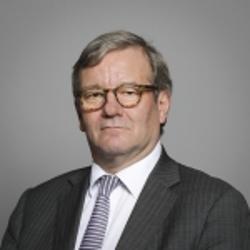4G: Greater London
(asked on 5th March 2020) - View SourceQuestion to the Department for Digital, Culture, Media & Sport:
To ask Her Majesty's Government what plans they have to improve 4G reception in the West End of London.
The Government announced on 9 March that it had agreed a deal with the mobile network operators to deliver the Shared Rural Network programme. This will see Government and industry jointly invest to increase 4G mobile coverage throughout the UK to 95% geographic coverage by end-2025. Coverage is based on Ofcom’s definition of good quality 4G coverage, which is the minimum signal strength required to deliver a 90-second telephone call and a download speed of at least 2Mbit/s, 95% of the time.
The Shared Rural Network is underpinned by legally binding coverage commitments from each operator to have reached at least 90%, which will be assessed in 2026. Ofcom will regularly report on coverage improvements towards this goal through its Connected Nations report.
Exact site deployment plans will be managed by the operators themselves in order for them to best deliver the agreed coverage outcomes. However, we expect that consumers will feel the benefit of the programme long before its conclusion and the operators will consult with communities as roll out plans become clearer.
While the biggest improvements in coverage arising from the Shared Rural Network will be in Scotland and Wales, there will be improvements across all four nations. 4G geographic coverage in England is currently 97% from at least one operator and 81% from all four operators. As a result of the programme, this will increase to 98% coverage from at least one operator, and 90% from all four by end-2025.
The Shared Rural Network will help close the digital divide between urban and rural areas by improving mobile coverage in largely rural areas across the whole of the UK. The programme is not directly aimed at improving coverage in dense inner-city areas such as the West End of London which, typically, have good 4G coverage from all four operators, and it will remain a commercial decision for operators to decide whether to improve coverage in such areas.
We are aware of the European Commission’s Digital Economy and Society Index report 2019, which compares 4G coverage of homes across Member States. The report, available via the following link, https://ec.europa.eu/digital-single-market/en/desi suggests that in 2018, based on an average of operator coverage, there was 98% 4G coverage of UK homes. This compared to 95% for France, and an EU average of 94%. The Shared Rural Network will help to improve our European standing by providing additional coverage to 280,000 premises.
While the vast majority of commercial rollout of 5G services will be delivered by industry and according to their own timeframes, government is committed to being a world leader in 5G technology and providing a 5G signal to a majority of the population by 2027. The Government is investing in a nationally coordinated programme of 5G testbed facilities and application trials to help achieve this, and has allocated £200 million from the National Productivity Investment Fund to the 5G Programme, which launched in 2017 and will run until March 2022.

